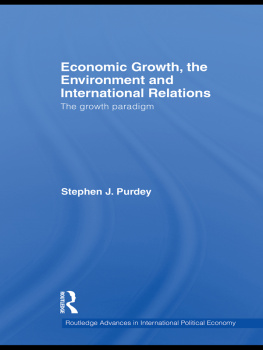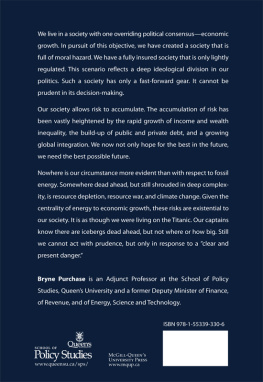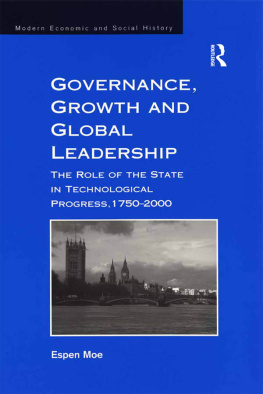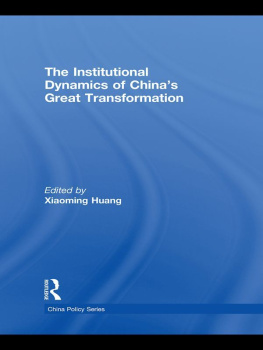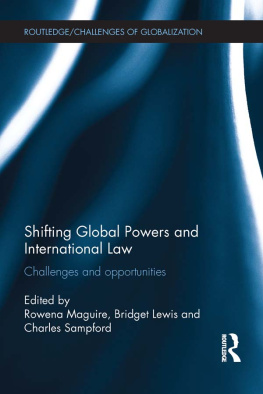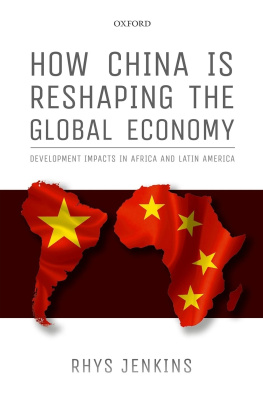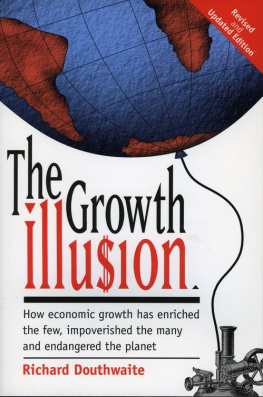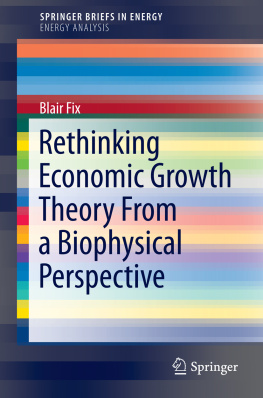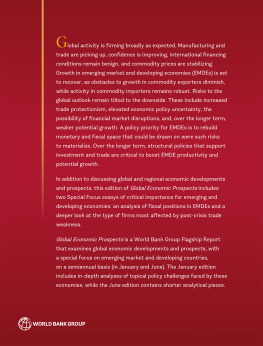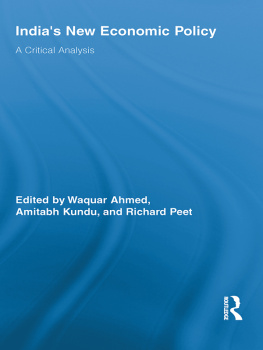Economic Growth, the Environment and International Relations
The ubiquity of the commitment to economic growth, which Purdey refers to as the growth paradigm, is extraordinary. National governments around the world are seized of the same objective. Major international institutions such as the UN, the WTO, the World Bank, IMF and OECD, powerful international organizations such as regional trading blocs and multinational corporationseven civil societies of all kinds enthusiastically pursue a larger economic pie.
This book examines the deep origins and rise to prominence of the commitment to economic growth. It explains why, despite the diversity of regime types, levels of development, cultures and other divisions typical of international relations, all major actors in the modern global polity pursue an identical political priority. Purdey critically examines the growth paradigm highlighting its normative foundations and its environmental impact, especially climate change. Using a neo-Gramscian approach, Purdey re-engages the limits to growth controversy, identifying the commitment to growth as a form of utopianism that is as dangerous as it is seductive.
By illuminating and interrogating the history, politics and morality of the growth paradigm, this book shifts the terrain of the limits debate from instrumental to ethical considerations. It will be of interest to students and scholars of political economy, international relations, environmental studies and ethics.
Stephen J.Purdey is a Lecturer at the University of Toronto, Canada.
Routledge advances in international political economy
1 The Future of the Nation-State
Essays on cultural pluralism and political integration
Edited by Sverker Gustavsson and Leif Lewin Co-publication with Nerenius and Santrus Publisher AB, Sweden
2 Classical Liberalism and International Economic Order
Studies in theory and intellectual history
Razeen Sally
3 Coping with Globalization
Jeffrey Hart and Aseem Prakash
4 Responding to Globalization
Jeffrey Hart and Aseem Prakash
5 Japanese Capitalism in Crisis
A regulationist interpretation
Edited by Robert Boyer and Toshio Yamada
6 Globalization and Social Change
Edited by Johannes Dragsbaek Schmidt and Jacques Hersh
7 Multilateralism and the World Trade Organisation
The architecture and extension of international trade recognition
Rorden Wilkinson
8 Foreign Direct Investment, Democracy and Development
Assessing contours, correlates and concomitants of globalization
Indra de Soysa
9 Rethinking International Organization
Deregulation and global governance
Barbara Emadi-Coffin
10 Technology, Governance and Political Conflict in International Industries
Tony Porter
11 Americas Trade Policy towards Japan
Demanding results
John Kunkel
12 Chinese Capitalism in a Global Era
Towards hybrid capitalism
Henry Wai-chung Yeung
13 The World Bank and Africa
The construction of governance states
Graham Harrison
14 Welfare, Right and the State
A framework for thinking
David P.Levine
15 Regional Trade Integration and Conflict Resolution
Shaheen Rafi Khan
16 Contested Capitalism
The political origins of financial institutions
Richard W.Carney
17 Economic Growth, the Environment and International Relations
The growth paradigm
Stephen J.Purdey
Economic Growth, the Environment and International Relations
The growth paradigm
Stephen J.Purdey

LONDON AND NEW YORK
First published 2010
by Routledge
2 Park Square, Milton Park, Abingdon, Oxon OX14 4RN
Simultaneously published in the USA and Canada
by Routledge
270 Madison Ave, New York, NY 10016
Routledge is an imprint of the Taylor & Francis Group, an informa business
This edition published in the Taylor & Francis e-Library, 2010.
To purchase your own copy of this or any of Taylor & Francis or Routledges collection of thousands of eBooks please go to www.eBookstore.tandf.co.uk.
2010 Stephen J.Purdey
All rights reserved. No part of this book may be reprinted or reproduced or
utilized in any form or by any electronic, mechanical, or other means, now
known or hereafter invented, including photocopying and recording, or in
any information storage or retrieval system, without permission in writing
from the publishers.
British Library Cataloguing in Publication Data
A catalogue record for this book is available from the British Library
Library of Congress Cataloging in Publication Data
Purdey, Stephen James.
Economic growth, the environment, and international relations: the growth
paradigm/Stephen James Purdey.
p. cm.(Routledge advances in international political economy; 17)
Includes bibliographical references and index.
1. Economic developmentEnvironmental aspects. 2. Climatic changes Government policyInternational cooperation. 3. Global warming Government policyInternational cooperation. I. Title.
HD75.6.P87 2009
338.9dc22 2009024147
ISBN 0-203-86339-9 Master e-book ISBN
ISBN10:0-415-54850-0 (hbk)
ISBN10:0-203-86339-9 (ebk)
ISBN13:978-0-415-54850-2 (hbk)
ISBN13:978-0-203-86339-8 (ebk)
Contents
Acknowledgements
With thanks to Herman E. Daly and Robert W. Cox.
What is the growth paradigm?
Understanding the growth paradigm as a form of governance
International relations are shaped in large measure by the condition of anarchy. In the colloquial sense anarchy means disorder, but in the academic sense used here it means the absence of a formally constituted world government. Anarchy sets the background from which most studies of international politics begin because it stipulates immediately that there is no overarching authority, no global government, to impose order on human society as a whole. This condition so obvious yet so important is actually rather deceptive because it does not signify something that exists, something concrete from which people and states can take their bearings. The opposite is true: it identifies a political void at the apex of human society which provides neither rules nor goals, and which is therefore permissive of other forces that compete to fill the vacuum. And indeed, the space left vacant by anarchy is not unoccupied. Other forms of governance have intruded into it, and imposed their own kind of order on the actors and affairs of the world.

